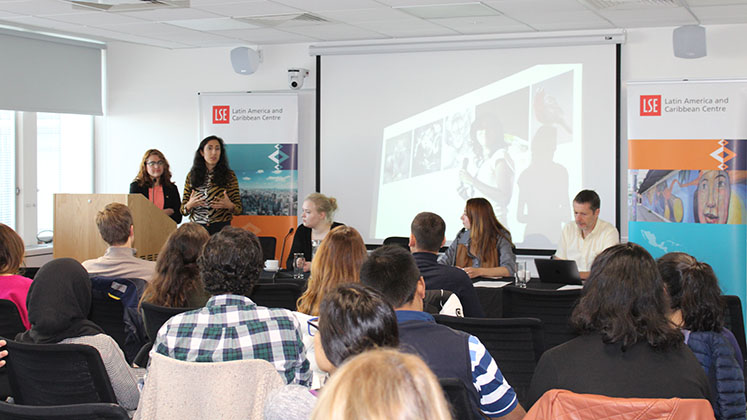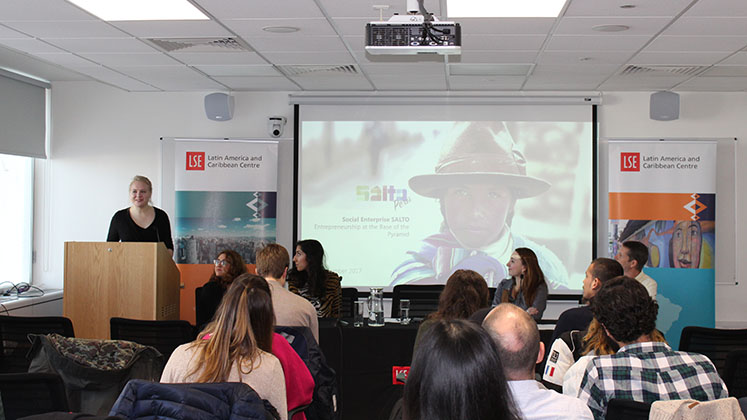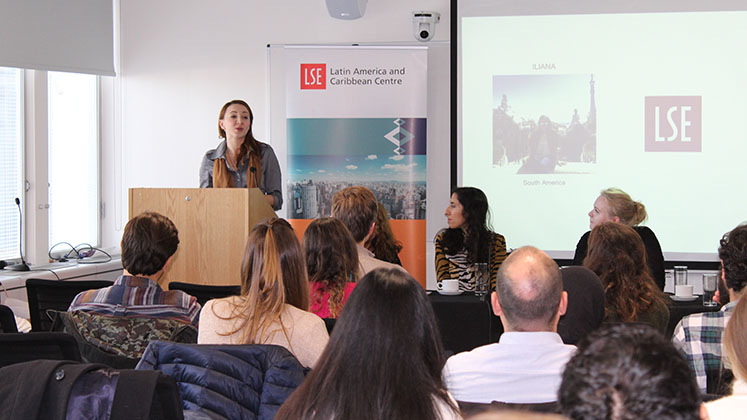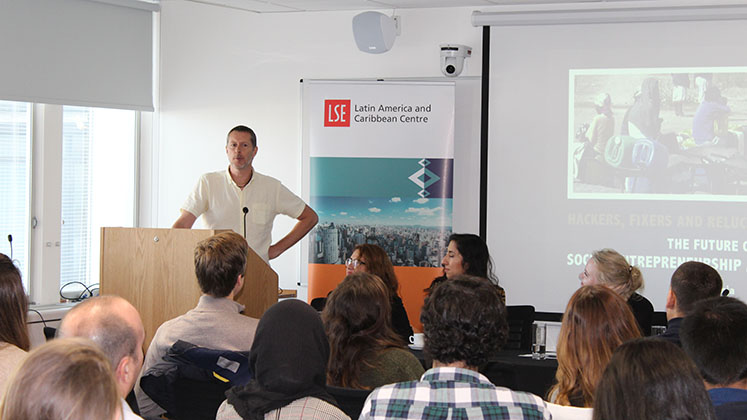The Innovation Co-creation Lab, the Latin America and Caribbean Centre and LSE Generate hosted Social Entrepreneurship 360° on November 23rd. The series, sponsored by Santander, launched with a reception opened by Professor Julia Black, LSE's Pro-Director of Research. The first workshop of the series brought together five successful social entrepreneurs at different stages of development who explained their journey, their business models, their failures and lessons learned, and shared their ‘golden nuggets’ for success.

Based in Chile, Te Protejo promotes the use of cosmetic products not tested on animals. Camila Cortínez Campos and Nicole Valdebenito Chamoro, the organisation's Director General and Director of Communications respectively, explained their initiatives all over Latin America and noted the importance of relationships with their partners.

In 2015, Eveline Smeets, an LSE alumna, co-founded Salto Perú, a not-for-profit social enterprise that seeks to increase the productivity of Peruvian micro-enterprises. Salto Perú trains and connects university students with micro-enterprise owners in Peru to help them improve their businesses through customised business facilitation and consultancy services.

Another LSE alumna, Iliana Zuluaga Vega, highlighted with her presentation that social entrepreneurship can be about luxury. Her fashion company, Basilissa, designs and produces deluxe, limited edition scarves made of 100% vicuña hair produced by communities in Peru. Iliana emphasised the importance of connections and that the best advice can be acquired with "a brownie and a coffee."

Ken Banks, an award-winning social entrepreneur specialising in technology for development, founded kiwanja.net in 2003 to apply mobile technology (SMS) as a driver of information and communication to the work of social innovators, entrepreneurs, engaged citizens and non-profit organisations in developing countries. His software has been used in 190 countries, by a wide range of users for different kinds of projects, from monitoring elections in Nigeria and driving democratic change in Zimbabwe, to running anti-trafficking systems in Vietnam, Nepal and Haiti, and sending security alerts in Afghanistan. Ken advised students to get first-hand experience of the areas they want to work in to realise peoples’ needs and use that to build their ideas.
The second part of the Social Entrepreneurship 360° series will take part in Lent Term 2018.